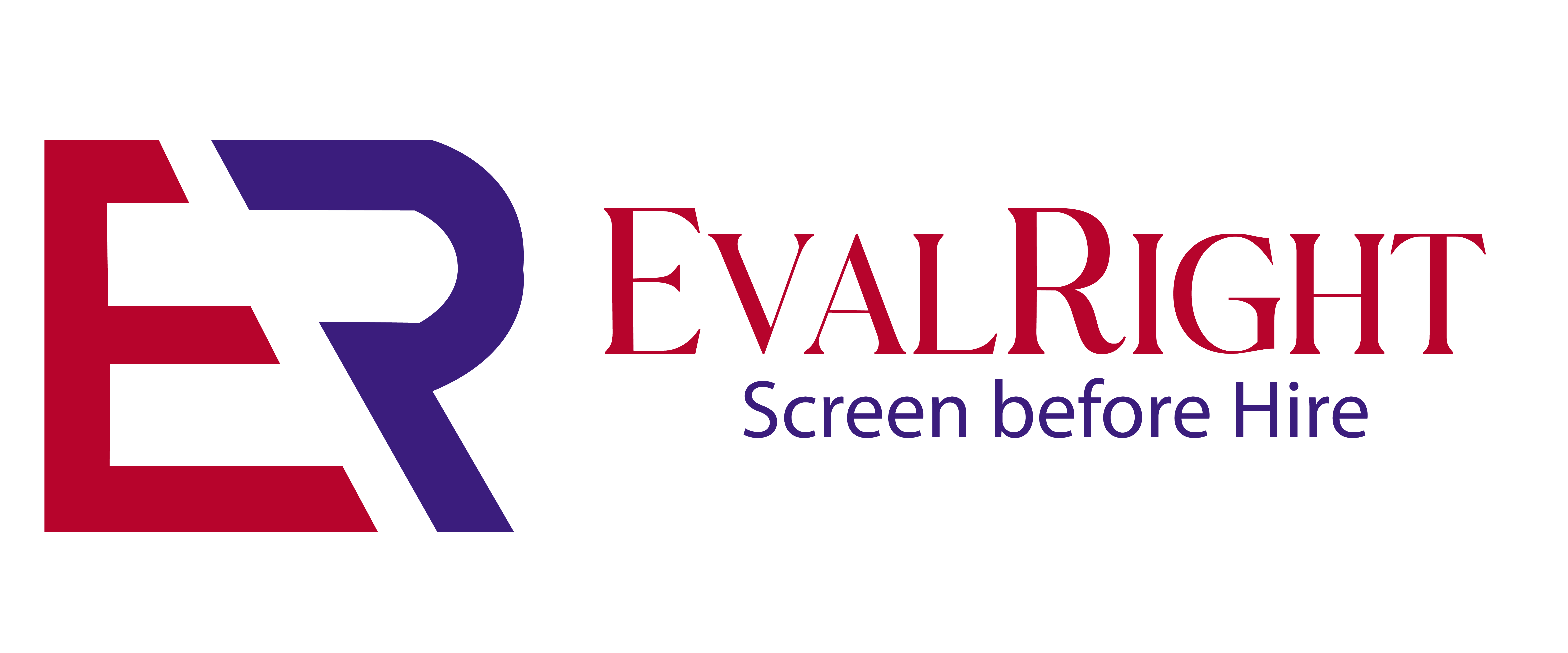According to checkster, 78% of job seekers lie during the hiring process.
The number justifies for itself why many employers nowadays, include pre-employment screening as an important part of their hiring process.
Employers typically perform background checks of candidates to help them reach their hiring decision.
In this blog, let’s discuss what pre-employment background screening is and why it is the need of the hour.
What is Employment Screening?
In the simplest terms, pre-employment screening refers to the process of verifying the legitimacy of the information provided by the candidate on their resumes and conducting a background check about their nature and behavior.
This whole process of screening may span anywhere from the review of the application to the final hiring.
This is also known as a background check or background screening.
Throughout the whole screening process, a candidate may be gauged for any or all of the following:
- Does the candidate meet the eligibility criteria required for the profile he/she applied for?
- Is the candidate a good fit for the organization’s culture?
- Is all information provided by the candidate in his/her resume legitimate?
- Does the candidate pose personality traits required for the position he/she has applied for?
The background screening provides the employers with an answer to all of the above questions based on which they can be confident about their hiring decision.
What Are The Types of Pre-employment Screening?
Based on the type of job the organization is hiring for, they may choose to conduct one or many of the following types:
#1. Criminal History Screening:
This involves checking the information in records from multiple sources.
The records may be from various local, state, national, federal, and even international databases to verify if the candidate has been ever charged with criminal cases.
Conducting criminal history screening helps protect an organization from any negligent hiring cases, but some state laws specify how the information is to be used for evaluating the candidates for hire.
Criminal history screening may involve searching the following:
- FBI Fingerprint Database
- National Criminal Record (NCRD)
- Federal Criminal Records
- Statewide Criminal Records
- County Criminal Record
#2. Social Security Number (SSN) Checks:
This involves tracing the social security number (SSN) of a candidate to disclose the name, dates of birth, and addresses linked to that SSN.
It helps employers in avoiding additional processing costs incurred due to unmatched or incorrect records.
Additionally, it helps employers to decide which records to look at next.
#3. Public Records Screening:
This involves searching public records like motor vehicle records, driving history, history of credit, bankruptcy records, compensation records, civil records, and sometimes medical records.
#4. Credit History Screening:
The Fair Credit Reporting Act (FCRA) governs the candidate credit screening.
Many employers do credit checks on candidates to determine if they have engaged in any inappropriate behavior that has resulted in financial difficulties.
Although, in order to do credit screening, employers must obtain the candidate’s consent and provide them with the results.
#5. Verification & Credential Screening:
This involves verifying the authenticity of the information provided by the candidate about their education, previous employment, professional certifications or licenses, references, and other service records.
#6. Drug Testing:
Drug testing is one of the most common types of screening conducted by employers in order to ensure that the candidate has not been involved in the consumption of any illegal substances.
Although, like credit screening, drug screening must be done in strict compliance with local state laws.
#7. Employment verification:
Employment verification involves the verification of the legitimacy of previous employment information provided by the candidate.
This may involve verification of dates of employment, job title, and other related details. In some cases, the information provided may be subject to the policies as pre-defined by the previous employer.
#8. Lie Detector or Polygraph Tests:
Most private organizations do not use lie detector tests as a part of tier screening.
This type of screening is usually only required by organizations that provide a guard or armored car services, as well as those who deal with the manufacturing and marketing of pharmaceuticals.
#9. Pre-employment Assessments:
Pre-employment assessments involve tests that an employer may conduct in order to determine that the candidate is skilled enough for the role they’ve applied for.
Purpose of Background Screening:
The main purpose of background screening is to find the answers to the following questions related to a new employee coming on board:
- Is the candidate the same as he/she claims to be?
- Is the candidate legally entitled to work in a specific country?
- Does the candidate’s employment history involve an event that would make them inappropriate for the role?
- Does the candidate fulfill the eligibility criteria including the educational qualification, experience, and skills required for the job?
- Does the candidate have a medical condition that would make them unfit for the role?
Once the employer has an answer to these questions, they may make their hiring decision more accurately, confidently, and efficiently.
Key Benefits of Background Screening:
When people talk about employment screening, the biggest and the first question that arises is what are the benefits of pre-employment screening and why is pre-employment screening important.
To answer this question, here we’ve listed some of the most significant benefits of employment screening.
#1. Improved Hiring Quality:
The first and the most prominent benefit of conducting an employment screening is the enhanced quality of hire.
It ensures that the individual you are hiring is trustworthy and absolutely fit for the profile.
Having screening as a part of your hiring process results in fewer applications with serious discrepancies and discourages applicants who are trying to hide or disguise facts, ultimately improving the quality of hire.
#2. Better Organizational Safety & Security:
As per the U.S Department of justice, approximately half a million workers lost 1.75 million days of work annually as a result of workplace victimizations.
Background checks significantly reduce the likelihood of future workplace violence and contribute towards building a safe and secure environment by screening out applicants who might have a criminal background or threatful character or behavior.
#3. Better Regulatory Compliance:
As per the local state laws in many regions, an organization could face fines and legal trouble if they do not have a background screening policy in place.
Conducting proper background screens not only helps you meet the industry standards but also the state regulatory requirements.
#4. Minimized Risks of Negligent Hiring:
Negligent hiring is a legal claim made against an employee by any individual who is injured by the employee having a similar past.
It not only causes legal trouble to the organization but also leads to loss of brand reputation and valuable customer trust.
Conducting proper background scans filters out the candidates having a history of threatful events or criminal background and hence, reduces the risks of negligent hiring.
#5. Reduced Employee Dishonesty:
Business losses due to employee theft are approximately $50 million annually in the US.
Background checks are a great way to predict a person’s future performance and behavior.
Candidates with a history of being involved in unethical events can be filtered out by conducting a proper background check.
#6. Reduced Employee Turnover:
Conducting proper background checks will significantly reduce your undesired employee turnover rate.
The more information you have in hand before hiring a candidate for a position, the less likely it is for you to make a poor hiring decision.
Questions to Ask When Conducting Background Screening of Candidates:
Here are some pre-employment screening questions to ask when conducting a background screening of candidates:
- What was the span of employment for the candidate?
- Why did the candidate leave the company?
- What were the candidate’s start and end salary?
- Did he/she receive promotion during the employment tenure?
- What was the candidate’s job responsibility?
- Can you describe his/her work performance?
- What was the candidate’s attendance record?
- What are the candidate’s strengths and weaknesses?
- Would you rehire the candidate if you were given the opportunity?
- Did they take direction well?
- How did they support coworkers?
- Were there any behaviors that affect the candidate’s job performance?
- Did they require a lot of supervision or work well independently?
- How did the candidate handle work-related stress?
- Would you like to add anything else?
Importance of Background Screening:
An organization must pose qualities like performance excellence, competitiveness, and integrity to become successful.
Employees are the true assets of a company that drives it on the journey of becoming the best-in-class business.
Employees contribute effectively towards the successful and efficient functioning of the organization and hence…
… every organization dedicates an ample amount of time and resources to decide on the most accurate process to get people on board.
This process is transparent, efficient, and is able to gauge if the candidate is a good fit for the profile and the organizational culture.
Employee hiring is one of the most crucial parts of a business.
However, going through hundreds of applications and CVs for any open position and deciding who is the right candidate based solely on the information provided in the resume can be tedious, inefficient, and overwhelming.
This is where pre-employment background screening comes into play.
Background screening allows employers to make their hiring decision based on evidence and speed up the hiring process of the right candidate.
Every time an organization hires a new candidate, there are multiple short and long-term investments and impacts that follow.
A good employee may not only perform their work efficiently but also motivate others and contribute towards building a positive environment.
On the other hand, a wrong candidate may harm the productivity of the whole team and even adversely impact the work environment.
Background screening helps you to –
#1. Boost Positive Work Environment:
Hiring a wrong candidate adversely affects employee morale and productivity.
Background screening ensures that the right candidate is hired and the employees’ retention is improved.
#2. Prevent Wastage of Resource’s Time:
Recruiting and onboarding candidates involve a lot of time and resources for any organization and if the candidate is not the right match, all this time may get wasted.
#3. Verify The Legitimacy of Information Critical to Candidates:
Background screening ensures that you hire someone who has the required skillset and professional skills required or the profile.
Therefore, it is extremely important to conduct proper and thorough pre-employment background checks in order to ensure that you hire the right candidate.
It is by far the most objective way of predicting job performance, skill proficiency, candidate character, and culture fit.
It is the best way to strengthen your recruitment process and screen candidates more efficiently.
Legal Considerations When Conducting a Pre-employment Background Screening:
There are certain regulations that govern the pre-employment background screening and these must be followed by every organization that conducts such screenings.
In some cases, these regulations may be specific to the region or state in which you reside.
The expense to fight against employment discrimination lawsuits can surpass tens of thousands of dollars.
These lawsuits not just harm your company financially, but may also lead to loss of brand reputation and valuable customer trust. An organization should never necessarily ask a candidate for the following details:
- Race
- Gender
- Color
- National Origin
- Age
- Disability
- Veteran Status
- Marital Status
- Sexual Orientation
- Religion
Conclusion:
When it comes to hiring for a new position, a thorough pre-employment screening helps the employer make a strong and confident hiring decision based on the evidence.
This not only saves time, money, and efforts of the employer but also helps the business in the long run.
Although, a thorough pre-employment background check can sometimes be a prolonged process, not having one can have adverse effects on your business and brand reputation in the long run.
It’s high time that organizations all around the world include thorough background screening as a part of their hiring process.
Start your background verification right now – Get A Quote


